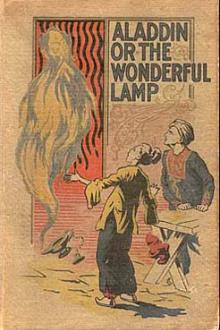The Yellow Claw by Sax Rohmer (best short novels txt) 📗

- Author: Sax Rohmer
Book online «The Yellow Claw by Sax Rohmer (best short novels txt) 📗». Author Sax Rohmer
“The murder!” she began...
Miss Ryland dropped into a chair which, fortunately, stood close behind her, with a face suddenly set in an expression of horror. She began to understand, now, a certain restraint, a certain ominous shadow, which she had perceived, or thought she had perceived, in the atmosphere of this home, and in the manner of its occupants.
“My dear girl,” she began, and the old nervous, jerky manner showed itself again, momentarily,—“remember that... I left Paris by ... the first train, this morning, and have simply been... traveling right up to the present moment.”...
“Then you have not heard? You don't know that a—murder—has been committed?”
“MURDER! Not—not”...
“Not any one connected with Mr. Leroux; no, thank God! but it was done in his flat.”...
Miss Ryland brushed a whisk of straight hair back from her brow with a rough and ungraceful movement.
“My dear,” she began, taking a French telegraphic form from her pocket, “you see this message? It's one which reached me at an unearthly hour this morning from Harry Leroux. It was addressed to his wife at my studio; therefore, as her friend, I opened it. Mira Leroux has actually visited me there twice since her marriage—”
“Twice!” Helen rose slowly to her feet, with horrified eyes fixed upon the speaker.
“Twice I said! I have not seen her, and have rarely heard from her, for nearly twelve months, now! Therefore I packed up post-haste and here I am! I came to you, because, from what little I have heard of you, and of your father, I judged you to be the right kind of friends to consult.”...
“You have not seen her for twelve months?”
Helen's voice was almost inaudible, and she was trembling dreadfully.
“That's a fact, my dear. And now, what are we going to tell Harry Leroux?”
It was a question, the answer to which was by no means evident at a glance; and leaving Helen Cumberly face to face with this new and horrible truth which had brought Denise Ryland hotfoot from Paris to London, let us glance, for a moment, into the now familiar room of Detective-Inspector Dunbar at Scotland Yard.
He had returned from his interrogation of Brian; and he received the report of Sowerby, respecting the late Mrs. Vernon's maid. The girl, Sergeant Sowerby declared, was innocent of complicity, and could only depose to the fact that her late mistress took very little luggage with her on the occasions of her trips to Scotland. With his notebook open before him upon the table, Dunbar was adding this slight item to his notes upon the case, when the door opened, and the uniformed constable entered, saluted, and placed an envelope in the Inspector's hand.
“From the commissioner!” said Sowerby, significantly.
With puzzled face, Dunbar opened the envelope and withdrew the commissioner's note. It was very brief:—
“M. Gaston Max, of the Paris Police, is joining you in the Palace Mansions murder case. You will cooperate with him from date above.”
“MAX!” said Dunbar, gazing astoundedly at his subordinate.
Certainly it was a name which might well account for the amazement written upon the inspector's face; for it was the name of admittedly the greatest criminal investigator in Europe!
“What the devil has the case to do with the French police?” muttered Sowerby, his ruddy countenance exhibiting a whole history of wonderment.
The constable, who had withdrawn, now reappeared, knocking deferentially upon the door, throwing it open, and announcing:
“Mr. Gaston Max, to see Detective-Inspector Dunbar.”
Bowing courteously upon the threshold, appeared a figure in a dazzling check traveling-coat—a figure very novel, and wholly unforgettable.
“I am honored to meet a distinguished London colleague,” he said in perfect English, with a faint American accent.
Dunbar stepped across the room with outstretched hand, and cordially shook that of the famous Frenchman.
“I am the more honored,” he declared, gallantly playing up to the other's courtesy. “This is Detective-Sergeant Sowerby, who is acting with me in the case.”
M. Gaston Max bowed low in acknowledgment of the introduction.
“It is a pleasure to meet Detective-Sergeant Sowerby,” he declared.
These polite overtures being concluded then, and the door being closed, the three detectives stood looking at one another in momentary silence. Then Dunbar spoke with blunt directness:
“I am very pleased to have you with us, Mr. Max,” he said; “but might I ask what your presence in London means?”
M. Gaston Max shrugged in true Gallic fashion.
“It means, monsieur,” he said, “—murder—and MR. KING!”
XII MR. GIANAPOLIS
It will prove of interest at this place to avail ourselves of an opportunity denied to the police, and to inquire into the activities of Mr. Soames, whilom employee of Henry Leroux.
Luke Soames was a man of unpleasant character; a man ever seeking advancement—advancement to what he believed to be an ideal state, viz.: the possession of a competency; and to this ambition he subjugated all conflicting interests—especially the interests of others. From narrow but honest beginnings, he had developed along lines ever growing narrower until gradually honesty became squeezed out. He formed the opinion that wealth was unobtainable by dint of hard work; and indeed in a man of his limited intellectual attainments, this was no more than true.
At the period when he becomes of interest, he had just discovered himself a gentleman-at-large by reason of his dismissal from the services of a wealthy bachelor, to whose establishment in Piccadilly he had been attached in the capacity of valet. There was nothing definite against his character at this time, save that he had never remained for long in any one situation.
His experience was varied, if his references were limited; he had served not only as valet, but also as chauffeur, as steward on an ocean liner, and, for a limited period, as temporary butler in an American household at Nice.
Soames' banking account had increased steadily, but not at a rate commensurate with his ambitions; therefore, when entering his name and qualifications in the books of a certain exclusive employment agency in Mayfair he determined to avail himself, upon this occasion, of his comparative independence by waiting until kindly Fate should cast something really satisfactory in his path.
Such an opening occurred very shortly after his first visit to the agent. He received a card instructing him to call at the office in order to meet a certain Mr. Gianapolis. Quitting his rooms in Kennington, Mr. Soames,





Comments (0)